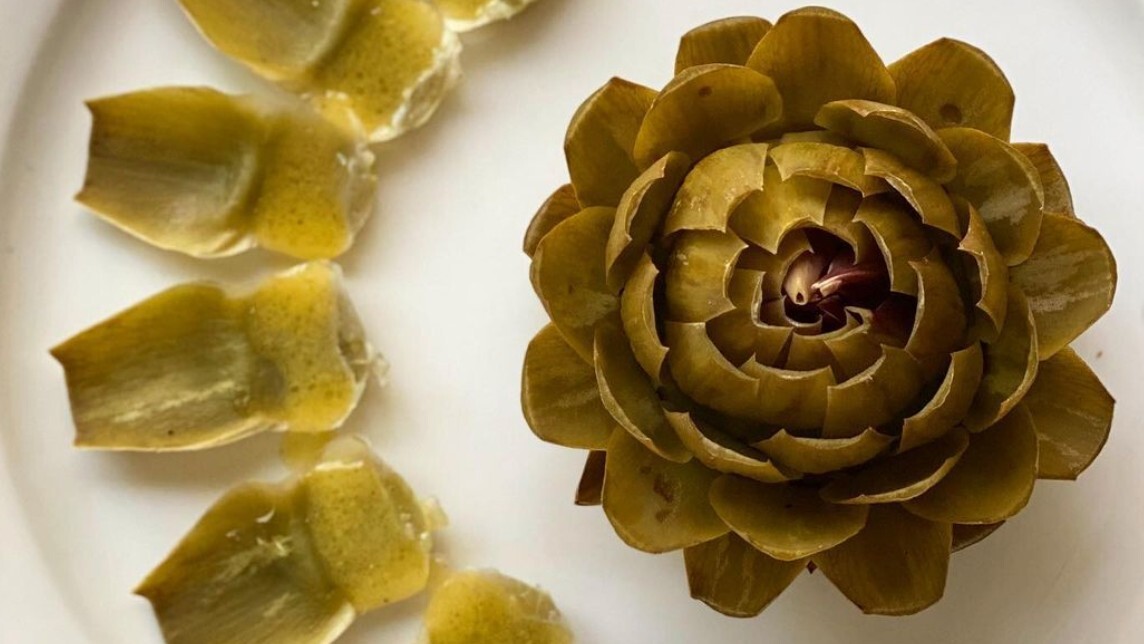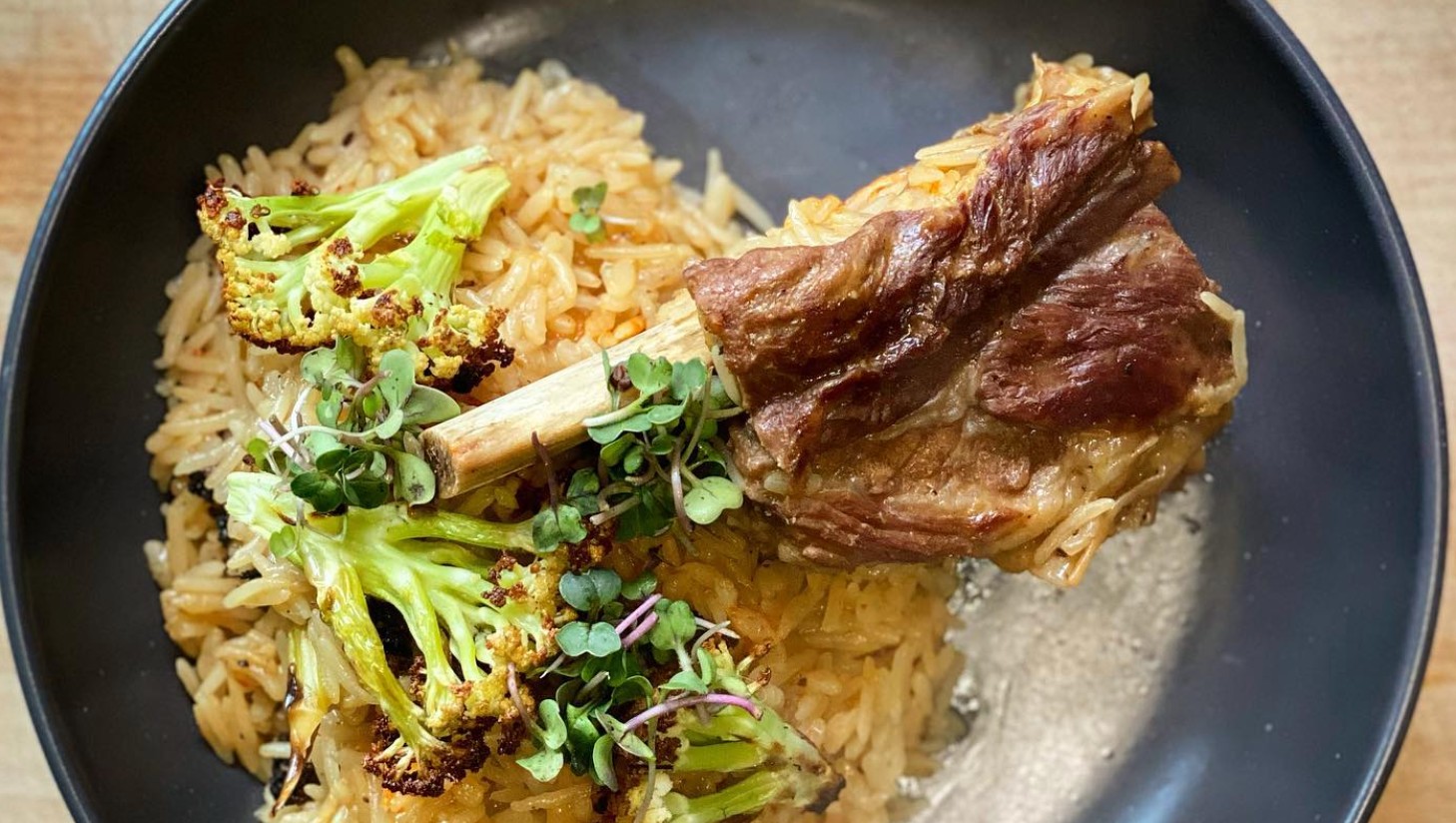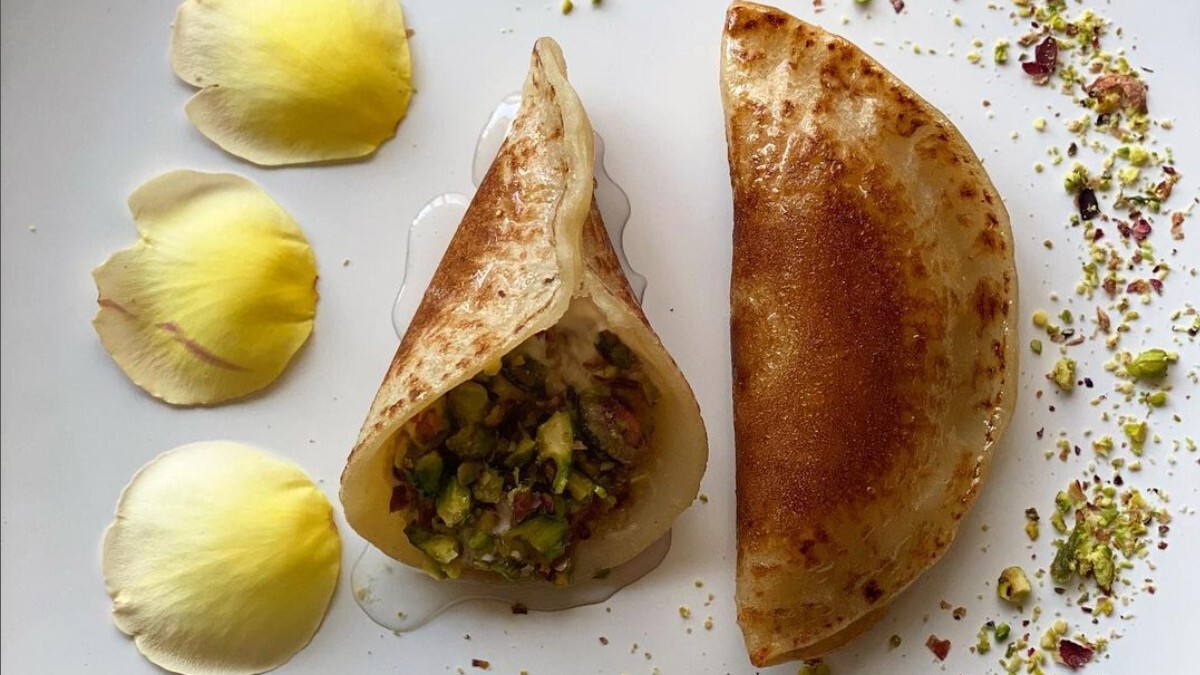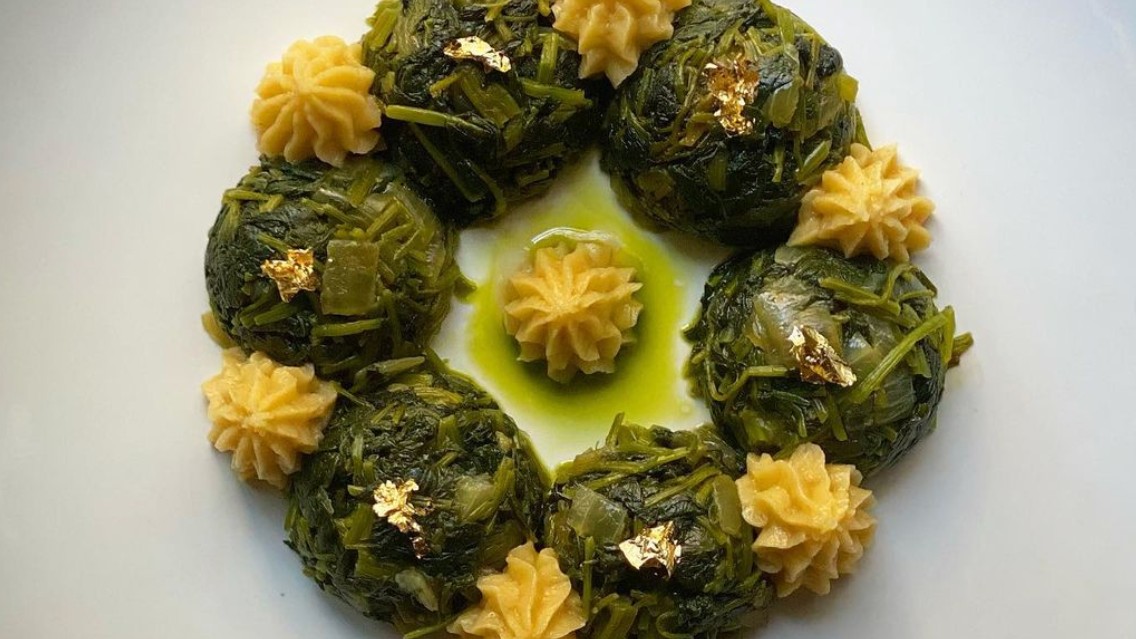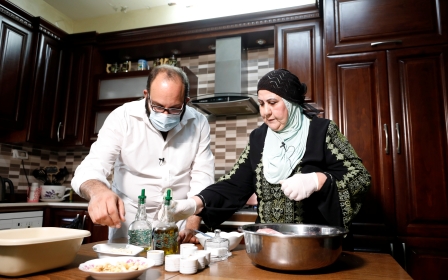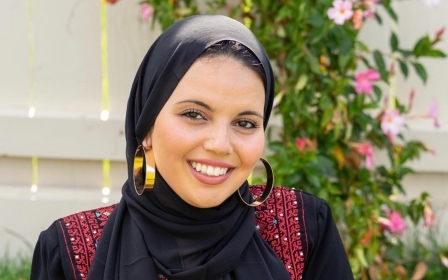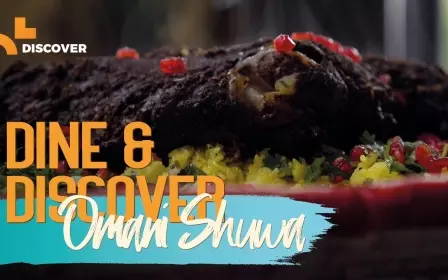'More than hummus': Chef Falastine on reclaiming Palestinian cuisine for a global audience

Since she began cooking at the start of the Covid-19 pandemic, Falastine Dwikat's syrup-soaked versions of Palestinian classics like kunafa have won the Nablus-based chef a global fan base.
In a few short years, Dwikat, also known by her professional sobriquet "Chef Falastine", has established herself as one of Palestine's most exciting culinary prospects.
Her dishes are a mix of the traditional and the modern, photogenically put together with social media audiences in mind.
Middle East Eye meets her in central Ramallah where she also spends time managing the cafe at the French-German Cultural Institute.
“I quit my last job in activism just before lockdown...it really felt like the end of the world," she tells MEE. "I was burnt out and tired, but I thought whatever, I’m going to start cooking and enjoy every second of it."
Stay informed with MEE's newsletters
Sign up to get the latest alerts, insights and analysis, starting with Turkey Unpacked
Before transitioning to becoming a chef, Dwikat worked closely with the BDS movement, as well as organisations such as Greenpeace.
“I got to campaign on different issues such as the environment around the Middle East and North Africa,” she says, however, for her the work took a huge toll on her and left her feeling burnt out.
Shortly after the lockdown was lifted, Dwikat enrolled in culinary school where she was taught different cooking techniques and food styling.
"Learning how to do these things more professionally really elevated my skills," she says.
Today she is part of a growing movement of Palestinian cooks and chefs spreading knowledge of their native cuisine to the rest of the world.
Other well-known names include the Palestinian chef Fadi Kattan, whose restaurant Akub offers a vibrant Palestinian menu in London's Notting Hill, and the Palestinian-American food influencer Heifa Odeh, who specialises in indulgent traditional Levantine recipes.
Dwikat's decision to switch careers has been more than vindicated: she has found success managing pop-up restaurants and events around Ramallah, and showcasing Palestinian cuisine on social media.
Her Instagram page is a test of resolve for a journalist researching a food story during the fasting month of Ramadan.
On it, there is a catalogue of mouth-watering delights, from pancakes glazed with truffle butter and served with walnuts and blueberries, to slow-cooked musakhan rolls resting in a yoghurt and mint dip.
Chef Falastine's love of food is evidenced by her creations but like many other Palestinian chefs, it is impossible for her to separate the gastronomic from the political.
Food and occupation
In the West Bank, the Israeli occupation has a tangible effect on food imports and production that ordinary Palestinians, as well as professionals, have to factor in when making dishes.
For example, Dwikat explains that unequal access to water plays a role in determining what foods can be grown by Palestinians.
“If we look at what happened after the Oslo Accords, there was an engineered effort to kill Palestinian agriculture by confiscating and having a monopoly over water resources," she says. “By default this suffocated Palestinian farmers who were not able to grow and compete with settlement products because they had to pay so much for water - it means that the prices of their produce was higher."
The situation means Palestinians must prioritise working with cheaper and less water-hungry crops.
There's also the practical effect of restrictions on freedom of movement that Palestinians living in the occupied West Bank must endure.
Many Palestinians have not been able to taste dishes from other regions of historic Palestine because they simply cannot visit those places.
“In the Galilee, they make a lot of kibbeh nayyeh [kibbe with raw lamb] and sadly I was not able to try it in Palestine. I tried it for the first time in Lebanon,” Dwikat explains.
Israeli appropriation
Another source of ire for the chef is to watch Israelis appropriate Palestinian dishes as their own with little to no acknowledgement of their origin.
The issue of cultural appropriation has been a long-standing complaint among Palestinians from many different walks of life but is particularly pronounced with regard to food.
Foods, such as hummus, falafel and tabbouleh are sometimes celebrated as Israeli dishes without references to their Palestinian roots.
'I was taught by my grandmother how to work with these ingredients in a way that is genuine and indigenous'
- Falastine Dwikat
Gil Hovav, an Israeli culinary journalist, states: “Of course it’s Arabic. Hummus is Arabic. Falafel, our national dish, our national Israeli dish, is completely Arabic, and this salad that we call an Israeli salad, actually it’s an Arab salad, Palestinian salad. So, we sort of robbed them of everything.”
For Palestinians, the "robbery" of cuisine reflects their wider experience of dispossession of their lands to make way for the state of Israel.
“There are so many Israeli chefs who are writing books and completely appropriating Palestinian culture," Dwikat says, adding: "What makes me angry is that the world outside of Palestine celebrates these books.
“As a Palestinian chef, I was taught by my grandmother how to work with these ingredients in a way that is genuine and indigenous, but now you see Israeli chefs that put tahini on everything and that doesn’t make any sense,” she says.
Dwikat says the issue is something that she is actively trying to combat now that she works in the culinary industry.
“I mean, they stole a whole country in terms of land resources, even peoples’ hopes and dreams were stolen and killed by this settler colonial project. Of course they stole our food.”
This anger is channelled as passion for her own dishes, which she says "show the world how as an indigenous person to this land actually uses ingredients".
Showcasing modern Palestinian cuisine
Dwikat makes a conscious effort to document Palestinian food in a way that is appealing to modern restaurant goers and audiences online.
Each dish she makes holds a particular significance for her and pictures of her food are often accompanied by an explanation in Arabic or English about the influences that went into making the dish.
'As a child growing up in the First Intifada, and the curfews, food made my day'
- Falastine Dwikat
Food for Dwikat has been a comfort amid the troubles that the occupation presents.
“As a child growing up in the First Intifada, and the curfews, food made my day. It was delicious and heartwarming and made everything feel lighter,” she says.
Growing up, curfews or lockdowns implemented by the Israeli military meant families would spend days at a time staying at home, cooking and eating.
The lack of groceries due to the restrictions also meant that people became creative with the foods they would make, something Dwikat says has influenced her to this day.
Now she says, she wants to move beyond her personal experience of Palestinian food culture and share it with the rest of the world.
“I think we have some of the best ingredients, dishes and flavours around the world but if you search for Palestinian food on Google, not much effort is put into the photos,” she says.
“The food needs to look as beautiful as it tastes. And that’s something I’m invested in.”
When I ask Dwikat about the one thing she wishes people knew about Palestinian food, she replies, “it’s more than hummus and falafel”.
This is something she hopes to convey in a book one day.
“I feel like something is brewing,” she says.
Middle East Eye delivers independent and unrivalled coverage and analysis of the Middle East, North Africa and beyond. To learn more about republishing this content and the associated fees, please fill out this form. More about MEE can be found here.


